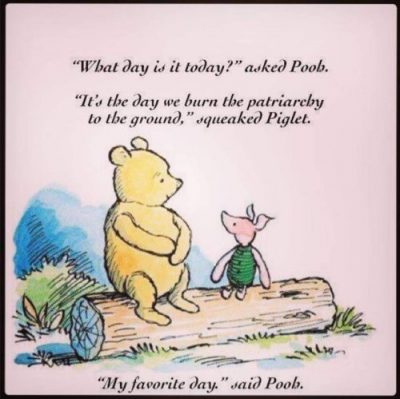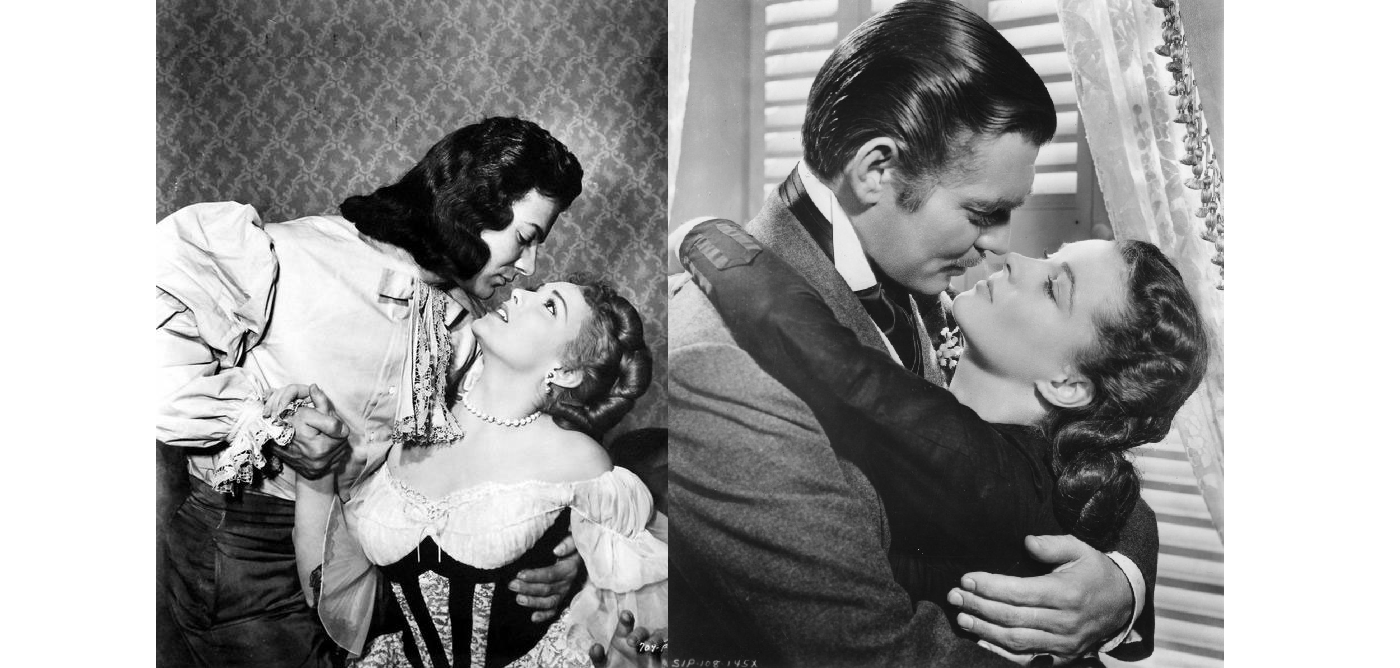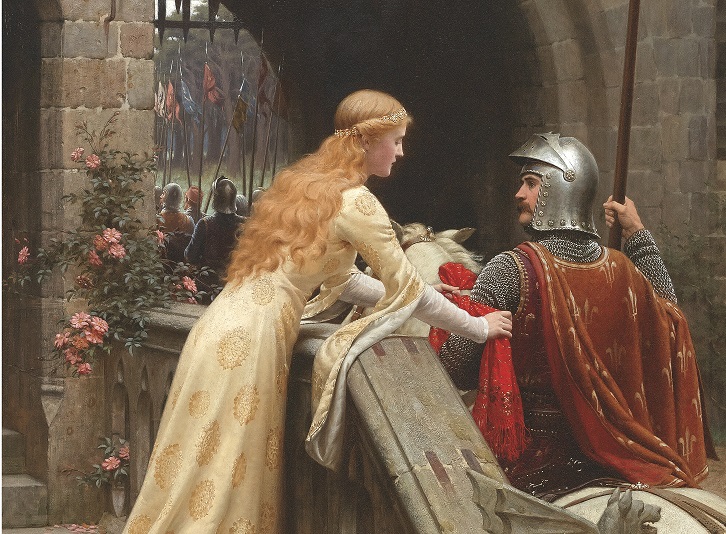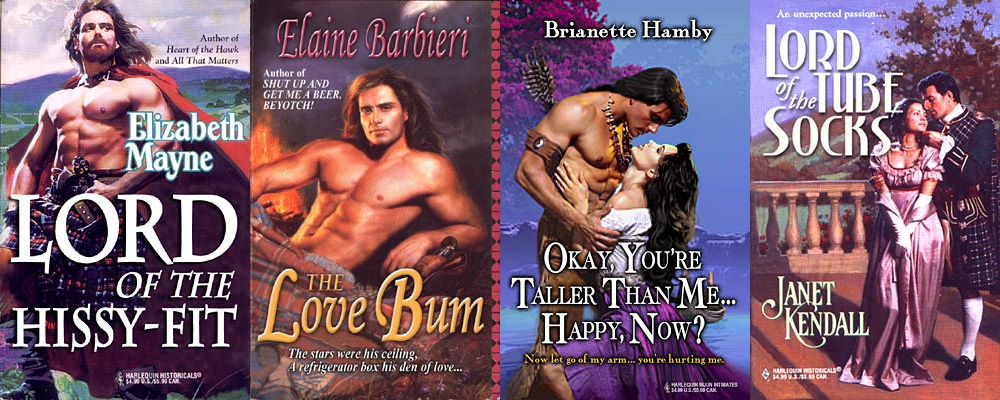This post is a follow-up to previous discussion on the topic of Alphas and Alphaholes. First, I tried to define what makes an Alpha or Alphahole. Next I looked at why the character type is appealing to readers. This time I’m discussing trends in what’s acceptable behavior from an Alpha or Alphahole, and how readers and authors are rethinking alphaholes.
Reading romances from previous eras has been somewhat appalling. If you read the previous installment in this series, you’ll know that most of the books I’ve read so far have featured alphaholes or outright assholes: heroes who force compliance from heroines and secondary characters, and who partake in physical, sexual, emotional and other types of violence. These are stories that were popular and accepted (to varying degrees) at their time of publication, yet have seemed absolutely terrible to me as a reader in the 21st century.
Where’s the line?
Where’s the line for unacceptable behavior in an alphahole hero? While it may vary by reader (and by genre), we can look at comments from individual readers to get an idea.
Sarah Wendell, of Smart Bitches, Trashy Books, quoted in a 2011 interview with Kirkus Books, says:
It used to be that romance was populated with alphas who were really assholes—autocratic chest-pounders with a tendency toward rape or at the least forced seduction. Alphole heroes still show up every now and again, usually as someone who is too assertive without any humility or honor—they’re not really dominant. They’re really just assholes. Alphole heroes are among my least favorite.
Writing on the Fiction Vixen blog in 2012, Nicole writes:
sometimes, a hero just goes too far and makes himself unredeemable. He pushes the heroine into a sexual position she doesn’t want to be in, he demeans her with words time and time again, he puts her down when he should be picking her up. While I can get past some of these qualities on a limited basis, when a hero acts like a jerk for 95% of the story, only to be magically redeemed by love in the end…. Well, it just doesn’t work for me!
Romance Fan Girl, in a 2014 blogpost, writes:
For me though, there’s imperfect and tortured and there’s just being an abusive, misogynistic pig.
I’m learning that there are certain things that I just will not accept in a hero. Salty language and dirty talk? No problem. Being derogatory to a woman and calling her a whore, slut etc and then justifying it to the heroine saying it’s okay because I’d never do that to YOU? Not okay. A man hitting a woman? Never okay.
Reader Helen, commenting in 2014 on an All About Romance post, writes:
When I read the first book, I thought it was a thriller, a great story with a truly creepy and evil bad guy, Tony, who stalks, kidnaps, rapes and beats the heroine while holding her captive.Then in the second book, I was shocked to find out this was a romance novel and he was supposed to be the romantic hero. Some things just aren’t forgivable.
And Selena Robins, on the same discussion, says:
If a book features a protagonist (I won’t call him hero, because hero’s don’t abuse women) who rapes, or kidnaps women and sells them as sex slaves, or commits murder just for the sake of being labeled a hot bad ass, then those books needed to be labeled differently, as they are not romantic. Stalking, obsessive behavior and all the things listed above are not romantic.
Nikki, writing for Scandalicious in early 2016, is tired of sexual assault as a plot point.
When your readers start taking bets on whether your newest heroine will be a victim of sexual assault, you’ve clearly overused that as a plot point. We won’t even address how extremely fucked up it is that I’m being forced to consider sexual assault a PLOT POINT.
In a 2017 “Bad Boy Recipe” on Hachette Australia’s blog, J.A. Low includes
2 cups of Alpha – but make sure this ingredient doesn’t have unhealthy control issues or creepy stalking tendencies as this could sour the recipe quickly.
In Ilona Andrews’ post on alphaholes, she also discusses the ‘unspoken rules’ which the alphahole must not break. I’ll summarize here, but strongly recommend you read her whole article, as she includes possible exemptions and special cases.
- He must not physically abuse the heroine.
- He must never kill or willingly injure children and defenseless pets.
- At the conclusion of the romance, alphahole must recognize the heroine as his emotional equal.
- Alphahole must never be emotionally abusive to the heroine.
Sexual violence is too far
While Andrews calls out physical abuse, a repeated theme I see in the comments above, which isn’t explicitly mentioned in her rules, is a specific intolerance for sexual violence.
- “Rape, or at least forced seduction”
- “Putting the heroine in a sexual position she doesn’t want to be in”
- “Rape”
- “Sexual assault”
I don’t mean to suggest that non-sexual physical violence wouldn’t cross a line for readers (including myself), but I see the sexual violence as the aspect which has become most obviously problematic for the 21st century reader. I don’t have a stack of quotes right now, but if you’ve been reading about the effects of reading romance, I expect you will be familiar with the idea that romances provide examples for readers of how relationships work. Critics of the genre are prone to suggesting that reading romance gives women unrealistic and dangerous ideas about relationships. Supporters of romance point out that sexual pleasure, empowerment and fulfillment should not be a fantasy for women, and furthermore, women are capable of distinguishing reality from fantasy. Readers of spy thrillers are not accused of unrealistic fantasies of undercover work, nor are mystery readers under suspicion of plotting murder.
However, I believe that there is value in having positive heroes, and I’ve seen authors report that readers have said their books helped them see their way out of abusive relationships. Some authors write with that in mind.
In an undated blog post addressing domestic abuse, author Harmony Williams explains:
After the way my husband treated me, it is even more important for me to write a strong heroine who is respected and loved for who she is.
Author AJ Harmon, quoted in a 2015 Newswire article:
If this book gives just one person a little hope and helps them escape the abusive cycle they’re trapped in, this book will be a total success.
For authors who may not have thought explicitly about the example that their alphahole heroes are setting in previous years, now in the context of the #metoo and #timesup movements following up on #yesallwomen, an American president often referred to as ‘Predator-in-Chief,’ I believe that Alphahole trope is shifting.
Rethinking Alphaholes
In February 2017, Book Riot ran a guest post from Angela James, editor at a Harlequin imprint, in which she identified “Good Guys” as an upcoming trend in romance.
Thanks to everyday events and current political tension, I think readers are already drifting away from the alphahole, douchebag hero and gravitating toward a man who respects women, who’s basically a decent guy (maybe with a troubled past, but not one that includes being abusive towards/using women), and who will stand up for what’s right.
Historical romance author Sarah MacLean, in an August 2017 article for the Washington Post, shared how she rewrote her work in progress after the election:
That hero? The one I’d lovingly crafted in that mold of masculinity that romance readers have loved for centuries? Sure, I had plans for him to see the promise of gender equality, but at that moment, I wanted him gone. This dude wasn’t just aggressively masculine. He was toxic. Indeed, I suspected he would have voted for Donald Trump. And I wanted nothing to do with him.
Suddenly, there was no promise that he would change. That hero — the one whom so many others in the genre have written for centuries, the one who grows into his awareness that everything is better with equality of partnership — he wasn’t enough. I wanted a hero who had that awareness from the start. I wanted an alpha feminist from Page 1.
Reader, I rewrote him.
In November 2017, contemporary romance author Jenny Crusie shared her thoughts on ‘writing an alpha hero in the age of the dickhead’:
I do not want a stupid hero. So Nick is going to have to be a fast learner, which he is. And Nita is going to have to kick his ass all the way through the third act, which she will. It’ll be Burn the Patriarchy to the Ground Day for the whole act. That’ll be fun.
On the Eight Ladies Writing blog, author Jeanne Oates Esteridge was also discussing the thin line between alpha and predatory in November 2017:
When I reread the scene in light of Harvey Weinstein/Kevin Spacey/Roy Moore/Louis C.K./Matt Taibbi/Al Franken/ad infinitum/ad nasuem, it didn’t work for me anymore. I didn’t like the hero for what he did, I didn’t like the heroine for not punching him in the face for doing it, and I didn’t like myself for perpetuating the myth that men who ignore a woman’s right to affirmative consent are sexy.
I went back and rewrote the scene. My hero still has to be a little off-the-chain because of the whole demon-possession thing, but he at least starts by asking to kiss her.
I’ve seen other writers on Facebook say they’re having the same experience–when they review scenes with alpha heroes making alpha sexual approaches to their heroines, they realize they’re no longer comfortable with what they’ve written.
In early February 2018, an article by Jordan Baker in Australia’s South Burnett Times declared:
THE age of the alpha hole – the brooding, brutish alpha male that would set hearts aflutter in the bodice-rippers of yore – is over. The nice guys have won.
I’m not fond of making sweeping generalizations, but I’m cautiously optimistic that we’re seeing a real sea change in the genre, and in society as a whole. Time’s up, alphaholes.
Have you changed a manuscript to make an alphahole more feminist? Comment on this post or ping me on twitter @RomMFA – I’d love to discuss!
And if you’re an author finding yourself in the camp who wants to write less assholey alphas, come back Thursday for a bonus post of resources on writing consent.
References and further reading:
- Ashton, Rika; “A Lesson in Romance Terminology: Alpha, Beta and Gamma“; rikaashton.wordpress.com, published 26 Jan 2011.
- Baker, Jordan; “Australia’s steamiest secrets“; South Burnett Times, published 4 Feb 2018.
- Harmon, R. Bradley; “Romance Novel Author Enters the Conversation on Domestic Abuse“; Newswire, published 7 Apr 2015.
- Jodi; “Anxious Alphole Masculinity – Quick Shots”; ClitLit, published 21 April 2010.
- Kearns, Aislinn; “Power Dynamics in Romance Novel Tropes“; aislinnkearns.com, published 29 Dec 2017.
- McKinnon, Cara; “Romance Pet Peeves: Alphaholes“; caramckinnon.com, published 16 Aug 2017.
- “Meh books and Alphaholes“; romancefangirl.com, published 25 Feb 2014.
- Nikki; “Why I’m taking a break from Contemporary Romance“; Scandalicious, published 28 Jan 2016.
- “Romance VI: Risky Business: Love, Abuse, and Violence“; Teach Me Tonight, published 2 Apr 2015.
- Williams, Harmony; “Why I Write Strong Women“; harmonywilliams.com, no date.



